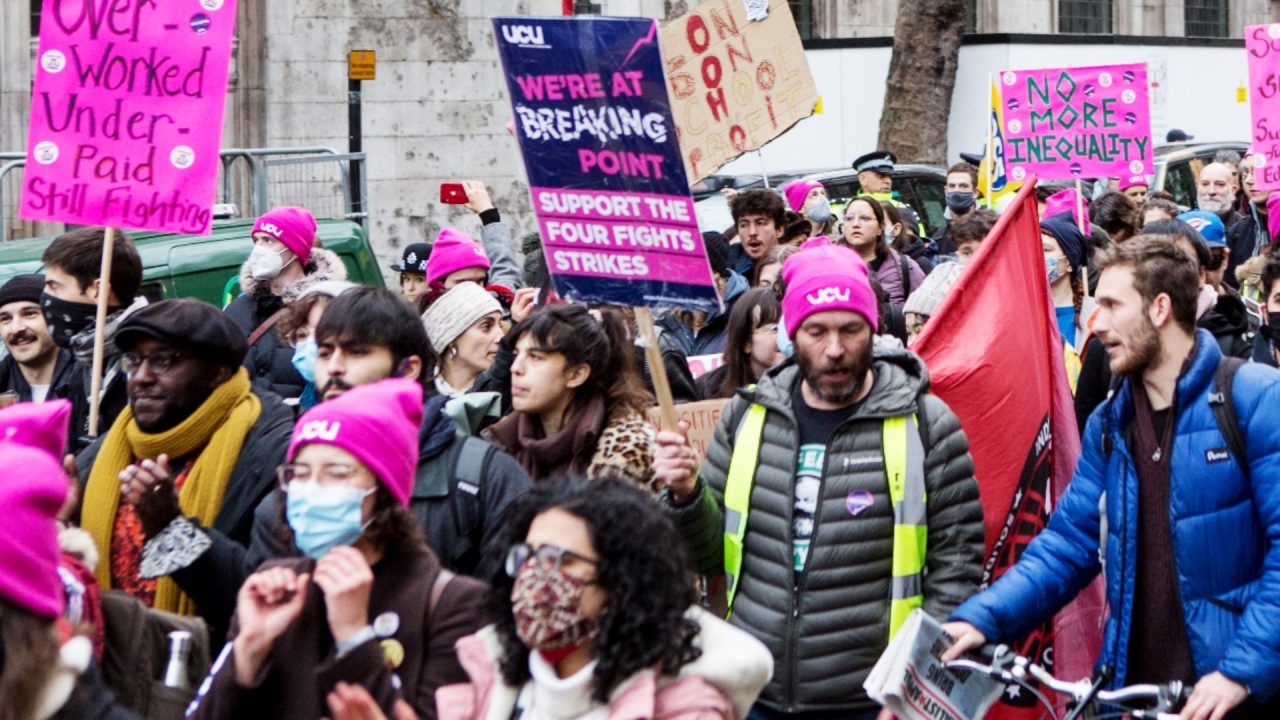More than 70,000 lecturers and other staff at 150 universities will strike for three days later this month in a long-running dispute over pay, working conditions and pensions.
The University and College Union (UCU) said the strikes – on November 24, 25 and 30 – will be the biggest ever to hit UK universities and could impact 2.5 million students.
The union said disruption can be avoided if employers make improved offers, but warned that strike action will escalate in the new year alongside a marking and assessment boycott if the dispute is not resolved.
Union members will also begin industrial action short of strike action from November 23, which includes working to rule, refusing to make up work lost as a result of strike action and refusing to cover for absent colleagues.
The strikes come after UCU members overwhelmingly voted in favour of industrial action last month in two national ballots over pay and working conditions as well as pensions.
UCU general secretary Jo Grady said: “Campuses across the UK are about to experience strike action on a scale never seen before. 70,000 staff will walk out and make clear they refuse to accept falling pay, cuts to pensions and insecure employment.
“This is not a dispute about affordability – it is about choices. Vice-chancellors are choosing to pay themselves hundreds of thousands of pounds whilst forcing our members onto low paid and insecure contracts that leave some using foodbanks. They choose to hold billions in surpluses whilst slashing staff pensions.
‘UCU members do not want to strike but are doing so to save the sector and win dignity at work. This dispute has the mass support of students because they know their learning conditions are our members’ working conditions.
‘If university vice-chancellors don’t get serious, our message is simple – this bout of strike action will be just the beginning.”
On pay and working conditions, the union is calling for a “meaningful” pay rise to deal with the cost-of-living crisis and action to end the use of “insecure“ contracts.
The union said employers imposed a 3% pay rise this year following more than a decade of below inflation pay awards.
In the pension dispute, UCU is demanding employers revoke a “package of cuts” made earlier this year which it claims will see the average union member lose 35% from their guaranteed future retirement income.
“For those at the beginning of their careers, the losses are in the hundreds of thousands of pounds,” said the UCU.
A spokesperson for Universities UK (UUK), which represents 340 employers, said: “We are saddened to hear that UCU plans to take strike action this winter. It is only through the work of our talented staff that universities are able to carry out their world-leading teaching and research, and we will continue to meet regularly with union and USS representatives.
“We appreciate this could be a difficult time for students, who may be anxious about possible disruption to their learning. Universities are well prepared for industrial action and will put in place a series of measures to protect students’ education, as well as other staff and the wider community.
“We are already working with UCU ahead of the next valuation, including sending a joint statement to the Department of Work and Pensions on pension regulation, establishing a technical group on valuation methodology, and on low cost options for employees who want more flexible pension contributions, and scheme redesign.
“However, in relation to the valuation itself, the current highly volatile economic climate has meant that the USS Trustee insists it is unable establish a long-term view of its funding position, or revise its prices, ahead of the next valuation in March 2023. In recent weeks, we have worked jointly with the USS Trustee to produce an accelerated valuation timeline, and we hope this will allow us to see sustained improvements in funding. At that point we will want to work with UCU to agree any changes as quickly as possible.
“It is important to remember that USS pensions remain among the most generous in the private sector. Employer payments have risen to 21.6% of salary, which is far higher than most other schemes.”
Follow STV News on WhatsApp
Scan the QR code on your mobile device for all the latest news from around the country


 UCU
UCU
























